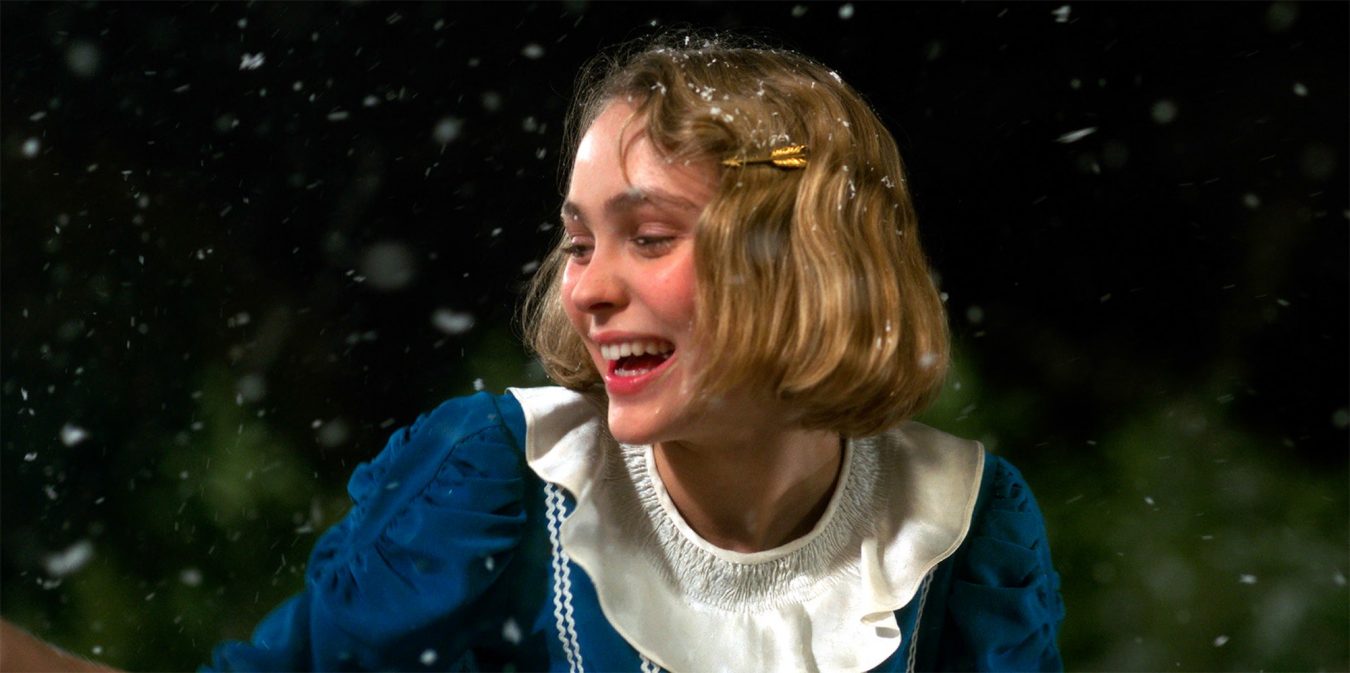She’s only 17 years old, but she has already starred in films in both Europe and the USA. As the daughter of Johnny Depp and Vanessa Paradis, Lily-Rose Depp grew up in a bohemian family, surrounded by art from the very beginning. During UniFrance, she discussed carving her own career path.
Was there ever any chance that you would become something other than an actress after having these parents?
For sure. I think when you grow up so close to it, there is a chance that you want to do the same exact thing and a chance that you want to do the furthest thing possible from it. I always wanted to be something like an actress or a singer or model or a ballerina or a spy or a painter or whatever. I always wanted to do something creative and in the arts.
When my parents wanted to protect me, I never wanted to listen to them. I always wanted to experience things on my own. What about you?
I was never really a tough kid. My parents didn’t really have a hard time with me, I’m a pretty nice girl, I’m pretty calm. Obviously everyone goes through stuff when they are a teenager, and I went through that kind of stuff, too, but my parents have always really trusted me, and they know I have a good head on my shoulders and that I know what’s what; I trust my gut instinct and I’m really aware of the people around me and I’m pretty good at reading people, I’d like to think. So I think they have always had a lot of trust in me, and I’m pretty lucky to have parents that have so much trust and allow me to be kind of independent.
Last year you made two French films (The Dancer, Planetarium) with two female filmmakers. Was that by chance or by plan?
It wasn’t by plan at all, I just happened to find these two scripts that I love so much and are incredible. To be honest, that’s the only reason that I would accept a role, if I just loved the script, loved the role, and the director; those are the only three aspects that can really affect it. I really think that the more people talk about the fact that it’s a female director and a female driven-movie or whatever, it almost kind of goes against what it’s supposed to mean.
Why?
People think it’s a good thing to be like, “Oh, it’s a female director, and this is good for women and change for women,” and I think that singling it out as a female-directed movie or a female-driven movie almost makes it as if it’s not normal for a woman to be directing a movie. I just happened upon two scripts that I really liked, and two roles that I really wanted to play, and directors that I really wanted to work with. They just both happened to be women.
Do you prefer acting in European or Hollywood movies?
Choose between both? Oh, I can’t. It’s so different, and I think it’s a mistake to do movies in [just] one or the other. I think especially when you are bilingual—I’m so lucky to speak both English and French, why wouldn’t I do movies here and there? It opens my opportunities up to a whole other range of directors, stories, scripts—I would be stupid not to explore both cinemas.
Is it the same outside cinema? Do you feel at home both in France and the States?
Yeah, totally. For me, home has been both places, forever.
You are doing the same job as your dad—do you sometimes watch movies with him and then ask, “Dad, how did you do this?”
Well, I don’t watch his movies. I’ve seen his movies, but I don’t watch them with him. He’s not that kind of person, he wouldn’t sit and watch his movies with me, and I wouldn’t sit and watch my movies with him. Neither of us would do that, I would feel super uncomfortable doing that. We don’t really talk about it like that, it’s just… I couldn’t even ask him that, it’s just something that comes naturally to him. He’s so crazy talented and incredible that, I don’t know, I just wouldn’t ask him that.
This interview has been edited and condensed.










